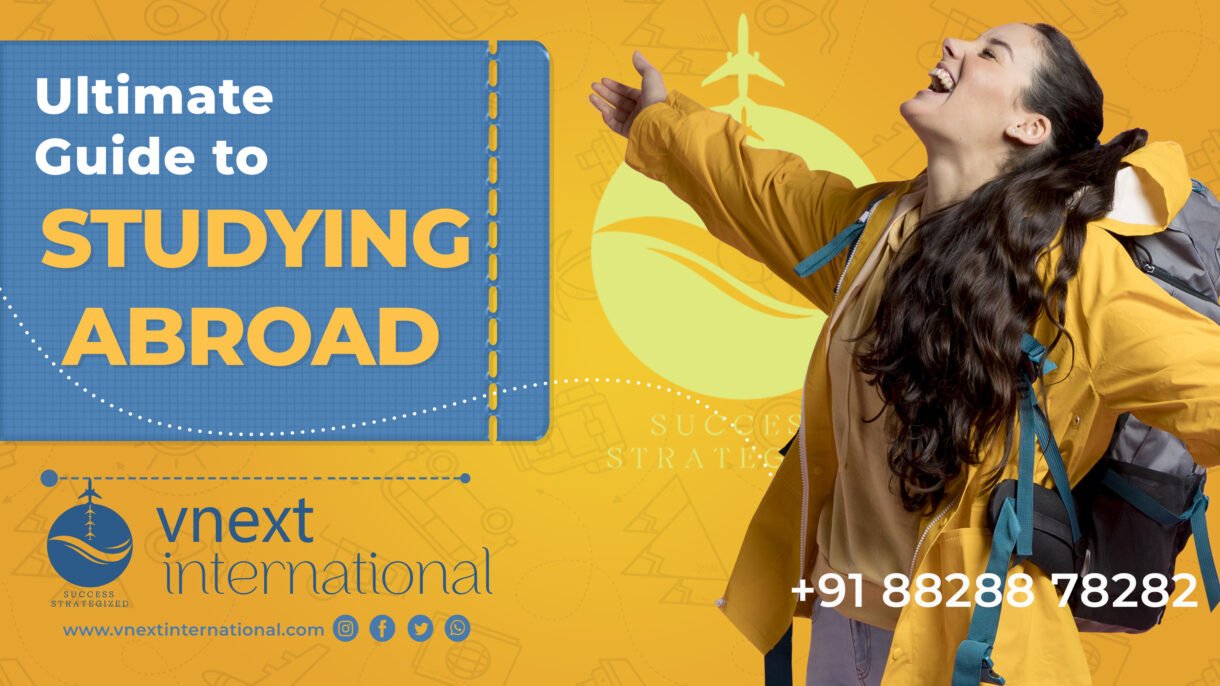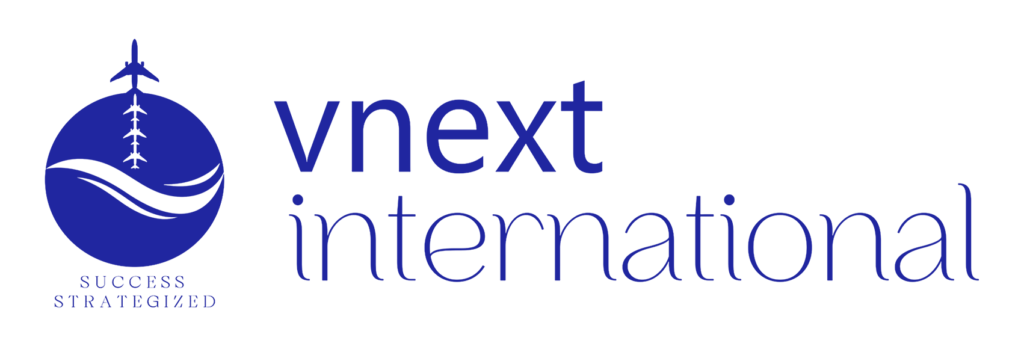
Mrunali Dhir, Senior Study Abroad Expert, Vnext International.

Studying abroad is an exciting and life-changing experience that can open doors to personal growth, academic excellence, and global career opportunities. This comprehensive guide will provide you with all the essential information you need to prepare for your journey and make the most of your time abroad.
1. Why Study Abroad?
Studying abroad offers countless benefits that can enhance your academic journey and provide opportunities that simply aren’t available at home. Here are a few reasons why you should consider studying abroad:
Personal Growth: Gain independence, confidence, and resilience as you navigate living in a new environment.
Academic Excellence: Access world-class education and cutting-edge research opportunities.
Cultural Exposure: Immerse yourself in a new culture, language, and lifestyle, which can broaden your worldview.
Career Boost: Studying abroad can make you stand out to employers, showcasing adaptability, global awareness, and language skills.
2. Choosing the Right Destination
Selecting the perfect destination is crucial. Here are some factors to consider when making your choice:
- Budget: Some countries are more affordable than others. Consider tuition fees, cost of living, and potential scholarships.
- Academic Programs: Look at the courses and programs offered at universities in your chosen destination.
- Language: Consider whether you are comfortable studying in a foreign language, or if you prefer English-speaking countries.
- Culture and Lifestyle: Think about the cultural environment that will best suit your personality and interests.
Popular destinations include:
Germany: Offers many free or low-cost tuition options and strong engineering and technical programs.
United States: Offers diverse programs and excellent universities.
United Kingdom: Known for prestigious universities and rich cultural history.
Australia: Features a relaxed lifestyle and world-renowned institutions.
3. Application Process
The application process can vary by country and university, but generally includes these steps:
Wait for Admission: Once accepted, you’ll receive your offer letter, which you’ll need for your visa application.
Research: Start by researching universities and programs that align with your academic and personal goals.
Prepare Documents: Gather necessary documents, including transcripts, recommendation letters, standardized test scores, and a personal statement.
Submit Application: Complete and submit your application to the university or study abroad program.
4. Visa and Legal Requirements
Once you’re accepted into a study abroad program, you’ll need to apply for a student visa. Here’s how to handle this process:
Attend Visa Interviews: Some countries may require an in-person interview as part of the visa process.
Research Visa Requirements: Each country has different visa requirements. Make sure to check the specific visa for students in your destination country.
Gather Documents: You may need proof of admission, financial support, a valid passport, and other documents.
Apply for Visa: Apply for your visa well in advance to avoid delays, as processing times can vary.
5. Funding Your Education
Studying abroad can be expensive, but there are many ways to make it more affordable:
Budgeting: Plan your expenses carefully. Look into affordable housing options and ways to save on living costs.
Scholarships: Many universities and organizations offer scholarships for international students. Search for specific study abroad scholarships available for your destination.
Student Loans: Check if your home country offers student loans for international education or if the destination country has financing options.
6. Accommodation and Living Abroad
When living abroad, you’ll need to decide where to stay. Here are some common options:
- University Dormitories: On-campus housing is often the easiest option, offering convenience and community.
- Private Apartments: Renting an apartment gives you more independence, but may be more expensive.
- Homestays: Staying with a local family can offer an immersive cultural experience.
Make sure to consider the location, cost, and amenities when choosing your accommodation.
7. Cultural Preparation and Adjustment
Living in a new country comes with a cultural adjustment. Here are some tips to help you navigate the transition:
Stay Connected: Stay in touch with family and friends to help combat homesickness, but also make an effort to build a new support system abroad.
Learn the Local Language: Even basic language skills can make a big difference in your daily life and interactions.
Be Open-Minded: Embrace new cultures, try new foods, and be open to different social customs.
8. Health and Safety
Before you go, make sure you’re prepared for health and safety while abroad:
Stay Informed: Keep updated on any safety advisories or travel restrictions related to your destination.
Health Insurance: Make sure you have comprehensive health insurance that covers you abroad.
Vaccinations: Check if your destination country requires any specific vaccinations before arrival.
Emergency Numbers: Familiarize yourself with local emergency numbers and procedures for medical care and safety.
9. Studying Abroad for Career Success
Studying abroad can significantly enhance your career prospects. Here’s how:
Language Skills: If you learn a new language while abroad, it can be a huge asset in your future job search.
Global Experience: Employers value candidates with international experience, as it shows adaptability and a global mindset.
Networking: Take advantage of networking opportunities while abroad, including internships, professional associations, and student organizations.
10. Returning Home: Reintegration Tips
Coming back home after studying abroad can be just as challenging as adjusting to life in a new country. Here are some tips to help with reintegration:
Share Your Story: Share your study abroad experiences with friends, family, or even through a blog or social media. It can help you process the experience and inspire others.
Reverse Culture Shock: Understand that you may feel a bit out of place when returning home. It’s normal to experience reverse culture shock.
Reflect on Your Experience: Take time to reflect on what you learned abroad and how you can apply it to your future career and personal growth.

Studying abroad is an exciting adventure that can change your life in profound ways. With careful planning and preparation, you can ensure that your time abroad is both fulfilling and successful. From choosing the right destination to adjusting to life in a new country, this guide will help you navigate every step of the process.
Ready to take the leap? Let us help you start your journey! Explore our study abroad resources and get started today.


0 Comments